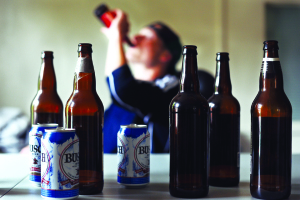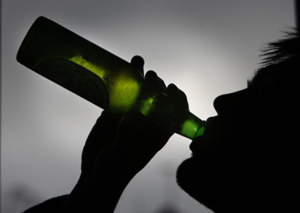 Alcohol is one of the most universally addictive substances available. Every region of the world that makes alcohol available for purchase has been found to have alcoholism present within its population, and Canada is no exception. Alcoholism, or alcohol addiction, is defined as alcohol abuse that is so persistent within an individual that their body has become dependent on it. Once a person has grown dependent on alcohol, it is very difficult to stop consuming it, on a physical and on a psychological level. Typically, Canadians should submit to treatment, for example a Calgary alcohol addiction treatment program, to rid themselves of alcoholism. The best way to avoid alcoholism is to be knowledgeable about it and be diligent in never abusing alcohol.
Alcohol is one of the most universally addictive substances available. Every region of the world that makes alcohol available for purchase has been found to have alcoholism present within its population, and Canada is no exception. Alcoholism, or alcohol addiction, is defined as alcohol abuse that is so persistent within an individual that their body has become dependent on it. Once a person has grown dependent on alcohol, it is very difficult to stop consuming it, on a physical and on a psychological level. Typically, Canadians should submit to treatment, for example a Calgary alcohol addiction treatment program, to rid themselves of alcoholism. The best way to avoid alcoholism is to be knowledgeable about it and be diligent in never abusing alcohol.
Often, people do not even realize that they are slipping into an alcohol addiction until they are already dependent on alcohol. It does not set in overnight. Alcoholism usually begins with experimentation and testing the limits of how much alcohol one can drink. Often it is a result of life circumstances as well. When someone is struggling through stress or negative emotions in their life, they begin to drink heavier. Or, if someone is simply being influenced by people who drink heavily, they will begin to drink heavier themselves. Alcohol provides a euphoric, mood altering feeling through the effect it has on the brain. Because people naturally develop a tolerance to alcohol, they need to gradually increase their consumption of it over time in order to continue experiencing the euphoric feelings it creates.
There in lies the addictive behavior. Many people crave the euphoric feelings alcohol gives them too intensely, and pursue the feelings even at the cost of ever-increasing alcohol consumption. The desire to feel intoxicated is so strong that people will pursue it even when their alcohol consumption is destroying their health, relationships and responsibilities. Physical damage begins to take place to their body, their loved ones become hurt and confused by their behavior and distance themselves from the alcoholic and the individual’s work or school performance begins to suffer. This is the picture of alcoholism that is all too well know to many people around the world.


